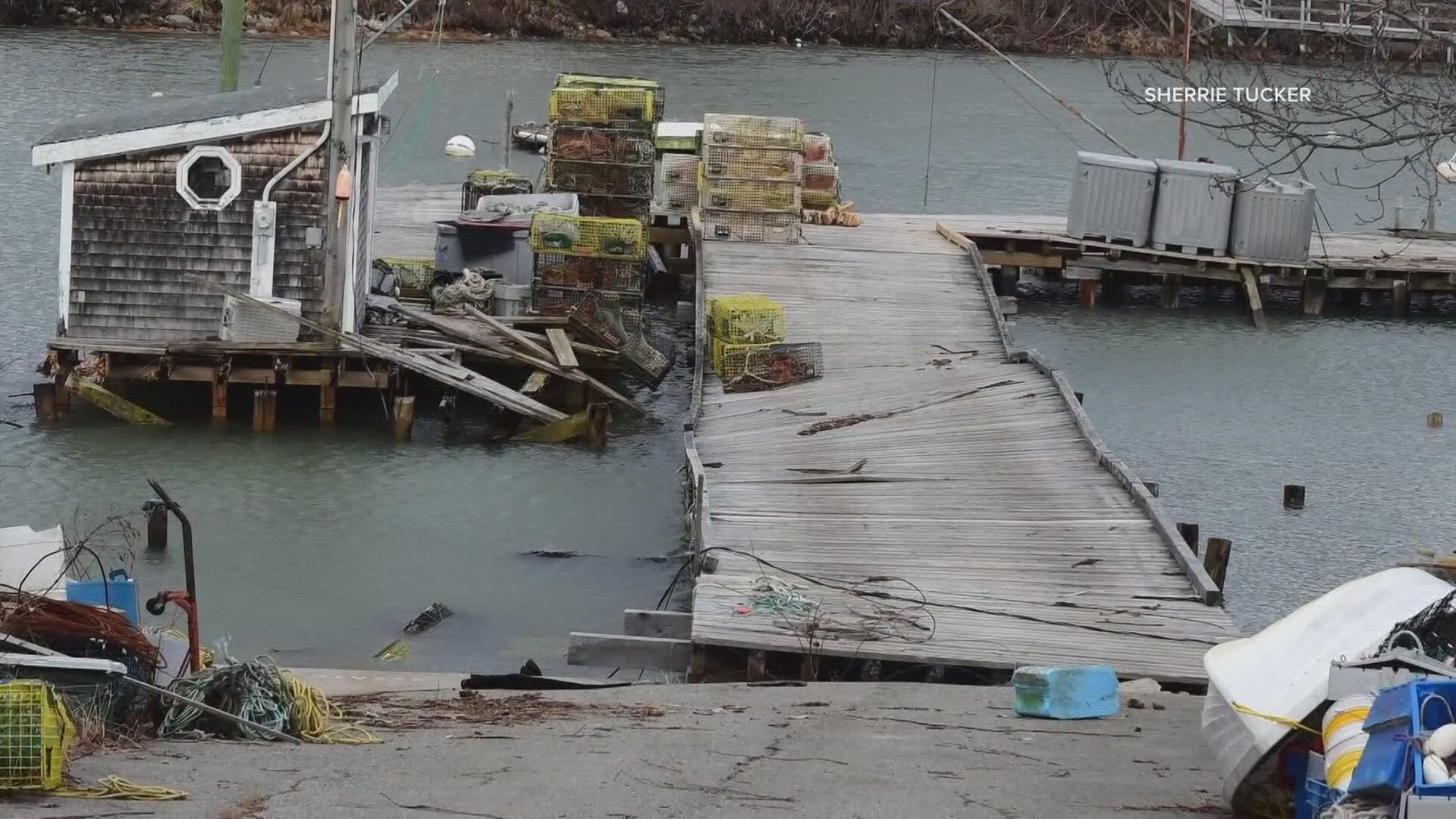MAINE, USA — It's been a few months since storms pummeled Maine's coastline. Starting in December, Maine faced three storms that destroyed critical infrastructure in coastal communities.
A new emergency law signed by Gov. Mills on March 12 eases some Department of Environmental Protections' Natural Resources Protection Act permit requirements, which will help people rebuild, both, quicker and to withstand future storms.
LD 2030 made an exemption so people can now rebuild their piers and wharves four feet taller than the previous infrastructure without needing to start the entire permitting process from square one.
People can rebuild piers higher by applying for a permit-by-rule, which is a process that takes 14 days. Applicants must give the DEP 14 days to review the application, then the applicant can begin work.
Prior to LD 2030, if someone wanted to make their infrastructure taller, for example, they would need to apply for different permit that would start a months-long process. Now, wharf owners can rebuild more resilient and within a shorter timeframe.
"It's sort of like a wharf is the on ramp to get on a fishing highway. If you can't get on the highway, you can’t fish," Peter Roberts, a Phippsburg fisherman, said when describing just how critical it is to rebuild the coast in a timely manner.
Roberts used to own two wharfs, but one floated away with the harsh waves in January. He, like many others, had been up against the state's permit process until the Legislature approved the new exemption.
"It's hard to see the state of Maine get impacted the way it is and not be able to get put back overnight," Mark Zaccadelli, the owner of Ocean's Edge Marine Construction, said.
Zaccadelli said his company was already booked out for more than a year, and recovering from the back-to-back storms in January just piles onto companies' workloads. While people were stalled in the process to get permits, companies' wait lists grew.
"To the people looking to get something overnight, just be patient. Make sure you’re getting the right product at the end of the day," he said.
Roberts said he was disappointed the Legislature took months to approve a bill while the state had been in desperate need for help.
"To take two months to get through is totally unacceptable," he said.
The Maine DEP introduced the legislation in December of 2023 to help Mainers recover from storm flooding and help prepare the state for future weather events. After the bill passed through the Energy and Natural Resources Committee, it reached the House of Representatives and Senate in early March. Gov. Mills signed the bill on March 12, the same day she received it.
"The Governor is grateful the Legislature passed the bill, but she shares the frustration that it did not move faster through the process," Scott Ogden of Gov. Mills office said.

